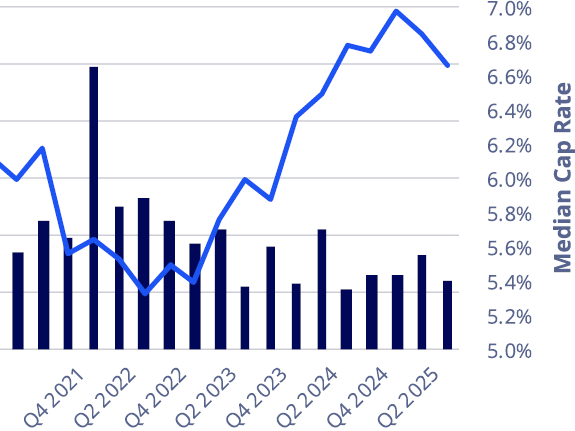How Owners Can Ensure Business Continuity With Their Assets
Careful planning and a proactive strategy can help ensure you’re prepared for what happens next, according to three experts from CoreNet NYC.
As New York City works to flatten the COVID curve, owners are in a delicate position, trying to balance the needs of the community and tenants with business continuity. However, careful planning and a proactive strategy can help ensure you’re prepared for what happens next, from a regulatory or business perspective.
Review Your Leases in Detail
Go back and review your lease in detail, especially with a group of qualified advisers to help navigate the complexities or vague language. There are usually a number of protections allotted for this kind of situation. For instance, make sure you know what exactly is considered force majeure within your clause, such as acts of God or strikes. A force majeure clause is written into leases to protect responsible parties from unforeseeable circumstances that prevent someone from fulfilling a contract. Be aware that these clauses vary in negotiations from site to site and that the terms typically leave room for interpretation.
You may not be familiar with every circumstance covered, as they are rarely utilized and can include a long list of possibilities. Engage your legal teams now, and make sure to record all interactions between tenants, landlords and other key stakeholders.
Additionally, while a force majeure clause may consist of a list of broad and specific items, capped off by a catch-all phrase, courts often construe force majeure clauses narrowly. It is common for the courts to rule the catch-all phrasing to be ineffectual if there are enough specifics listed in the contract. Tenants are often unfamiliar with the specifics of the contract, and that could lead to an uphill battle. Everyone involved needs to understand completely what the leases state.
Business Interruption Insurance
Without specific reference to such events, typical business interruption insurance policies tend to focus on property coverage, protecting only against interruptions in business activities resulting from physical damage to property. Still, you should consult with your insurance broker. Many landlords and tenants may be looking to the government in the coming weeks to determine if this pandemic is considered business interruption, but you should develop a plan of action with your broker and understand your options.
Strategize with Your Asset Manager
COVID-19 poses issues for tenants and landlords alike, so it’s important to find common ground and negotiate. From an owner/landlord perspective, deferment is better than abatement, so consider approaching a conversation with this advice in mind. Tenants may want to look for creative ways to create rent relief as well, like offsetting rent liability with remaining security deposits, TI allowance amounts, or overpaid OpEx, CAM & sundry charges.
Owners should also keep an eye on small business trends during this downturn, as it is yet to be determined how they will fare under the relief packages. The vast majority of businesses have only one office, and many office owners likely have single-office tenants in their buildings.
Also, remember that many of your tenants will have upcoming lease expirations, and therefore must either renew or relocate in the near future. However, it may be prudent to consider extending these leases on a short-term basis. Almost every lease has a holdover provision, and tenants will likely want active discussions with landlords to ensure they don’t trigger that provision, because the holdover rent is typically a multiple of the existing rent. But be aware that others will look to take advantage of the leverage they have with their landlords.
Don’t Panic About the Future of Offices
As almost all companies are working from home now, the question of companies maintaining their current office footprint is another concern. Ultimately, you shouldn’t plan for the end of offices or any kind of significant rollback of space requirements.
The current situation also shouldn’t be seen as a reliable study on how much employees like it or find it productive. Ultimately, working from home is not being offered as a benefit for employees; it’s mandatory through a government executive order. People are working from home as best as they can, while also dealing with a global health emergency and caring for children in many cases. It’s difficult to determine how this will impact the future of leases, co-working spaces and open office strategies.
In comparison, a better study of the advantages of working from home would be if everyone were in a business-as-usual situation and got to work from home on their own terms instead of a mandatory sentence. In that case, you could gauge productivity, employee satisfaction and the effects on collaboration.
Be Strategic About Debt
Everyone is looking at what banks are willing to do in this environment in terms of real estate lending. Especially with the bailout money, banks will be forced to continue lending, though they may be concerned by the run on their credit and will likely try to be more conservative than usual.
You also need to be aware of potential hyperinflation, if banks wind up over-lending. While this is preferable to a complete standstill, you need to prepare for that eventuality. Ultimately, economic relief efforts at present are designed to stop the bleeding, and are not a true stimulus package.
Rebecca Fielding, Workplace Strategy, Unispace is the CoreNet NYC Marketing & Communications Committee Member; Jason Aster, Managing Director, Growth, KBA Lease Services is the CoreNet NYC Emeritus Board Chair; and Marcus Rayner, Vice Chairman, New York Region, Colliers International is a CoreNet NYC Advisor.










You must be logged in to post a comment.